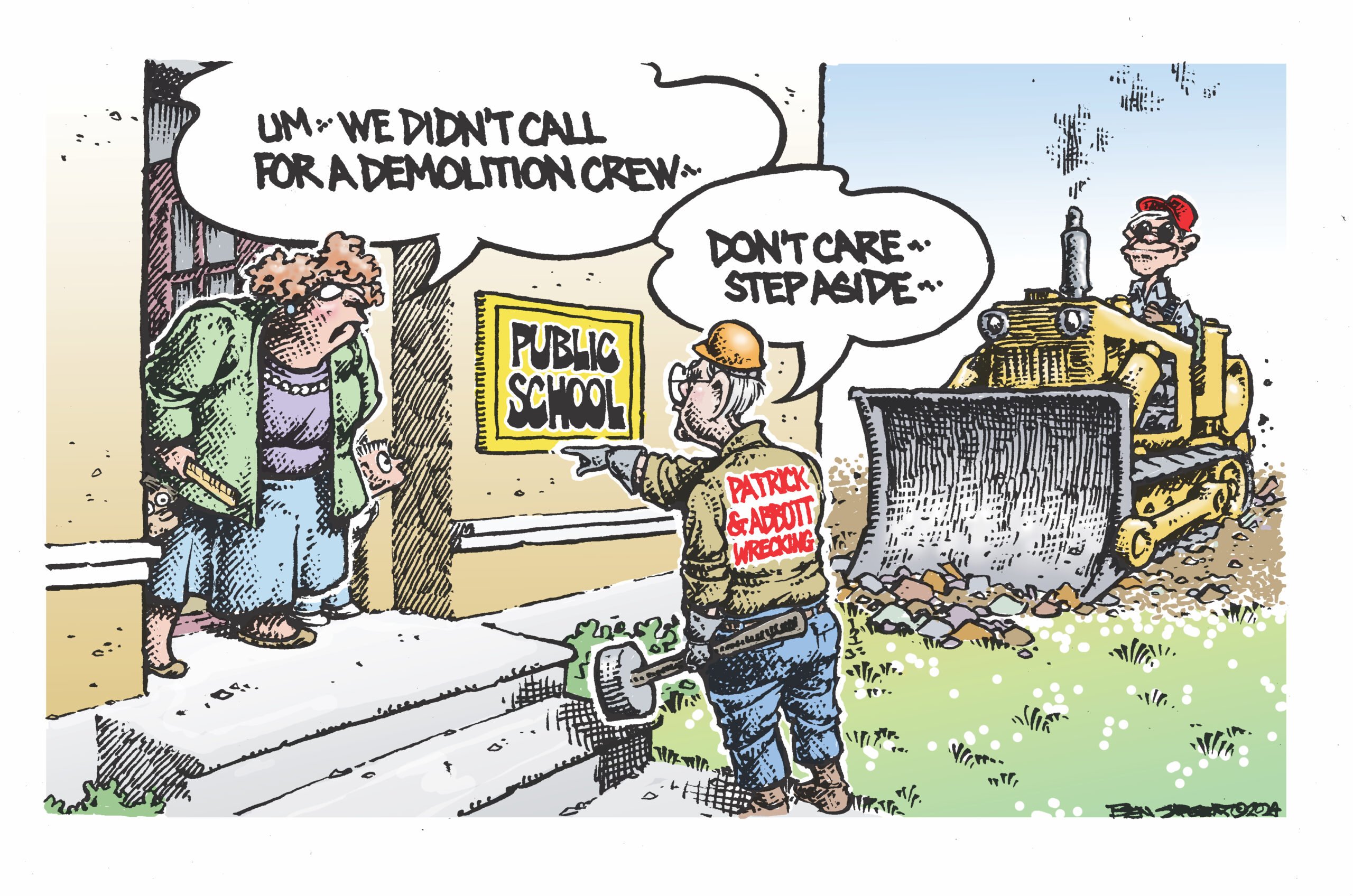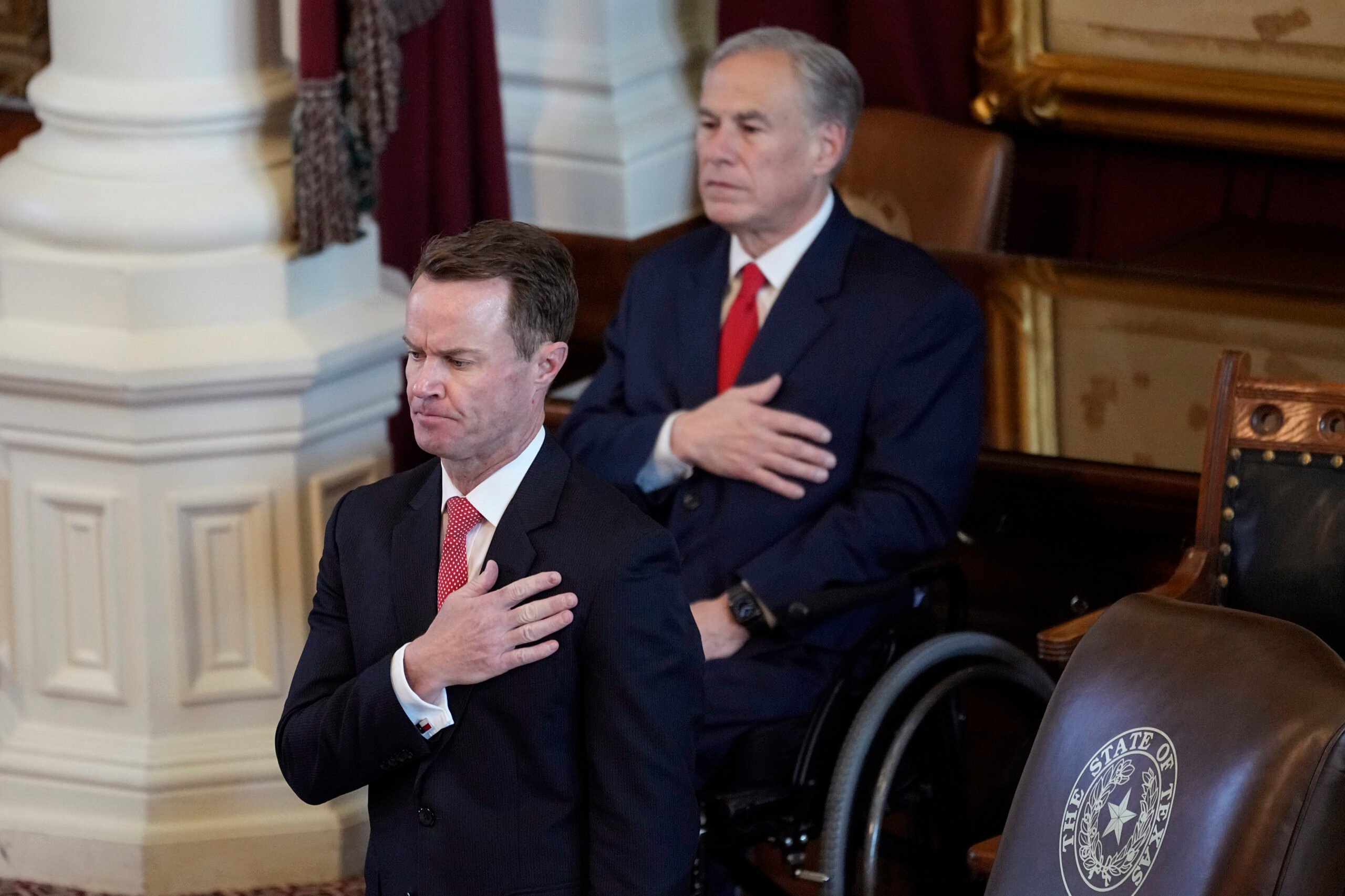Parents of Abused Children Plead for Cameras in Special Ed Classrooms
David Penny sat before the Senate Education Committee this morning to discuss his 12-year-old daughter, Hailey, who has Down syndrome. Hailey was abused in her New Caney special education classroom, he said, but despite witnesses and photo evidence the Montgomery County District Attorney said that there wasn’t enough evidence to prosecute her teacher.
“My daughter’s been abused three different times in two different districts in seven years,” Penny said as he fought back tears. “Nothing was done. When a witness came forth at one school district, they told her, ‘If you testify, you’re going to lose your job.’”
Penny was there to support a bill by Sen. Dan Patrick (R-Houston) which would require cameras in self-contained special needs classrooms.
“I believe these cameras will help,” Penny said. “We don’t know when [our children] are being abused, but if they come home ever looking like this, we should be able to file charges and have something done. Because if I do that to my child, I go to jail. If any one of us do that to our children, we go to jail. These people are getting away with this.”
Rebecca Spurlock, a paraprofessional teacher in Cypress-Fairbanks ISD, said she witnessed abuse and was forced to resign when she reported it to her principal. She said she reported the abuse to Child Protective Services and the abusive teacher was fired. “I thought, you know, ‘If there was cameras here … there would’ve been no question. You would’ve seen it. I mean, it was so obvious. Day after day, the abuse of the children.”
Parent after parent testified this morning on behalf of special needs children who had been locked in closets, slapped, burned, yelled at, and beaten until their knees were dislocated and their thumbs broken. The room filled with tears as the testimony continued—it was one of the most emotional hearings of the legislative session. “This is something that shouldn’t be happening anywhere in this state,” Sen. Eddie Lucio Jr. said.
Sergeant Jim Blackburn from the Collin County Sheriff’s Office supported the idea, saying cameras installed in his car made him a better officer, and he figured they’d do the same for teachers too. He agreed that without evidence, cases like Penny’s are hard to close.
“In the cases I investigate, where it’s a special needs child who has been abused in some way in a classroom, often the most difficult part is if the child is nonverbal, and you have to go with so much innuendo and so much supposition. Until you can find that witness, it’s hard to develop the case,” he said.
Patrick reminded the room that only “a very, very, very small number” of special needs students are abused, but this morning’s testimony seemed to imply otherwise.
Many witnesses argued that the problem is in the education code, which permits any treatment considered “behavior control.” That makes it difficult to argue that the level of force was unnecessary, they said, especially without evidence.
Nobody came forward to speak against the bill, or its $2.2 million price tag, based on a cost of $1000 per camera. Patrick suggested that much was a small price to pay, given the horror stories told today.
Patrick has credited a series of reports from Houston’s Fox 26 News reporter Greg Googan with uncovering the abuse problem, but there’s national precedent as well. A 2009 Government Accountability Office report addressed the issue, as well.
“The level of abuse that we’re seeing is not minimal,” special education advocate and parent Mara LaViola said. “We’re seeing it not only in inner city schools that have more challenging situations, perhaps, due to budget constraints, but we’re seeing it in affluent school districts as well.”
She works with Blackburn in the Dallas and Collin County area. “We work on several cases a year, at least five,” she said. “That’s too many in these types of school districts. It’s rampant, it’s all over, and we have to do better.” Whether the education code, individual teachers or poor training is to blame for the rampant abuse, those who testified sounded certain that cameras would help.
“When we try to advocate for these children, the evidentiary value of this video is what we need,” LaViola said.


